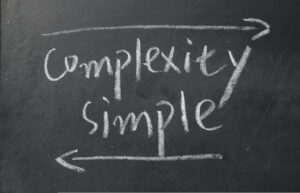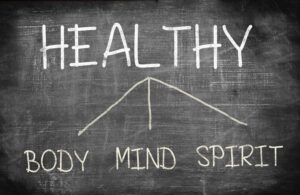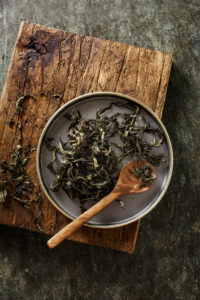HOW ARE YOU REALLY?
An Eastern Medicine Perspective

It’s a question you’re asked every day, but we have all become so accustomed to answering “good” or “busy” that we likely don’t even think about what the real answer is. The answer becomes de facto. Maybe because we don’t want to be real with the world. Or, maybe because we don’t want to be real with ourselves.
Sadly, when we do actually ponder it for half a second, we tend to do so in a vacuum, often directing our thoughts to the one bothersome thing on our mind. You’ll likely think about your boyfriend (that you didn’t even really like) breaking up with you, even though you have a great job and a cool apartment in a city you live.
We Are More Than Just…
 It’s tough to think about ourselves comprehensively. It’s natural for our attention to go toward putting out whatever is on fire, but we are more than just a dumpee. We are a yogi and an artist and a spicy food lover, and a million other things. People are complex, but Western mentality tends to try to group things and people into an easily understood categories. That’s why we often think of people in reference to their jobs i.e. “he’s an attorney.”
It’s tough to think about ourselves comprehensively. It’s natural for our attention to go toward putting out whatever is on fire, but we are more than just a dumpee. We are a yogi and an artist and a spicy food lover, and a million other things. People are complex, but Western mentality tends to try to group things and people into an easily understood categories. That’s why we often think of people in reference to their jobs i.e. “he’s an attorney.”
This siloed grouping is pervasive in Western societies and is particularly impactful with regard to our health. Western medicine is fragmented with your care coming from a specialist who treats a symptom, but in the East you’re treated as the sum of your parts.
Your physician considers you in your entirety—body, mind and soul – and takes into account everything from seasonality to your environment. You could be a happy, healthy individual, but if your neighbors are keeping you up all night with petty arguments, you’re not going to be in the best shape. Conversely, if you keep getting headaches, the West would give you some Tylenol and call it a day, where Eastern practitioners would first find out why you have the headache to begin with.
“A superior doctor is able to gather all techniques and use them either together or separately.” — The Yellow Emperor’s Classic of Medicine

Traditional Chinese or Eastern Medicine look at how the body functions as a unit in its environment. Each system is intertwined. We are not only a combination of our internal systems (circulatory, a respiratory, digestive, etc.), but we are also our friends, our family, the air we breathe, our serenity, and so much more. They all work together. And, they can each individually contribute positively and negatively to our lives.
When one isn’t working properly, it throws you off. If you’re suffering from a bad breakup, nothing is wrong with your stomach, yet you have no appetite. That’s because it’s all connected.
Treat People Not Symptoms
In western medicine, there seems to be a pill for every concern. Stomach ache? Take a pill. Depression? Take a pill. Back pain? Take a pill.

While we’re not advocating against treating symptoms, wouldn’t it make more sense to understand that your new bout of depression might have come as a result of the crazy pandemic world we’re living in. You’re no longer going out to your favorite coffee shop, grabbing lunch with a friend, going to see a movie, and you’re isolated working from home rather than in a social environment at work. Rather than choosing a pill on the onset, Eastern medicine would look at this complete picture and focus on a means to balance how to help your body along with getting your head in a better space.
Simply sending someone on their way with a bottle of pills may masque the issues in the isolated section of the body, but how is the problem touching your life in other areas. Finding balance and using preventative healthcare measures is a means to finding total well-being.
Just as people are complex, the “treatments” Eastern medicine uses range from herbs, teas, and foods to treatments like meditation, moxibustion, or acupuncture. For one identified ailment, your practitioner will likely advise you to do many things to find balance in your system once again.

Since Eastern medicine has been around for thousands of years, it began long before we began testing things as we now do in most Western medicine. Instead, the proof was in how the patient felt. Given that treatments are specific to the person, rather than the ailment, it doesn’t make sense to test a customized solution on the masses. Instead, Eastern medicine is both an art and a science, utilizing the experienced gained from others while tailoring to your specific setup.
Ever a like extra Vitamin C before traveling? You were probably thinking, it couldn’t hurt to boost up my immune system. Maybe I’ll add in some Zinc. Preventative medicine is everything from the food we eat to the choices we make in taking care of our bodies.
This “alternative” medicine (AKA holistic or natural) may be an alternative to Western medicine, but doesn’t it make more sense? We’d love to hear your thoughts. And, we’d love to hear how you’re really doing.
Newer
Why Tai Chi Will Be The Next Yoga
Older
4 Ways You Make Yourself Sick (and What to Do About It)
Comments (0)
Leave a reply
You must be logged in to post a comment.




